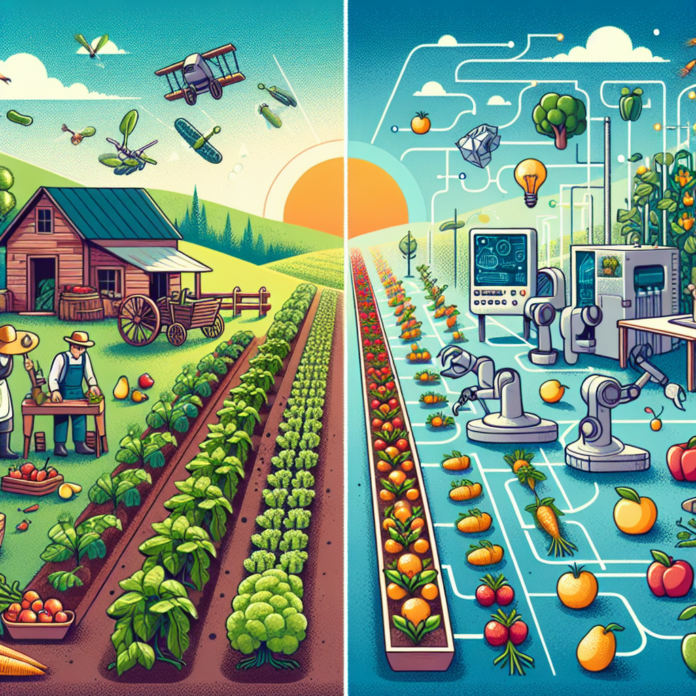Rethinking Food Production
Transforming Our Agricultural Practices
In recent years, the urgency of rethinking our food production systems has become increasingly clear. The conventional methods of agriculture, which often rely heavily on chemical fertilizers, pesticides, and monoculture practices, are proving unsustainable in the face of climate change, biodiversity loss, and soil degradation. As we grapple with these challenges, it is imperative to explore innovative and sustainable ways to grow our food that prioritize environmental health, social equity, and economic viability.
Embracing Sustainable Farming Techniques
One promising avenue is the adoption of regenerative agriculture, a holistic approach that focuses on restoring soil health, enhancing biodiversity, and sequestering carbon. This method encourages practices such as crop rotation, cover cropping, and agroforestry, which not only improve soil structure and fertility but also increase resilience against extreme weather events. By investing in these sustainable practices, farmers can create a more robust agricultural system that contributes to the health of the planet while ensuring food security for future generations.
Technological Innovations in Agriculture
Advancements in technology also hold significant potential for transforming food production. Precision agriculture, which utilizes data analytics, satellite imagery, and IoT devices, enables farmers to optimize their use of resources, such as water and fertilizers, thereby reducing waste and minimizing environmental impact. Vertical farming and hydroponics are other innovative solutions that allow for food production in urban areas, reducing transportation emissions and providing fresh produce to city dwellers year-round.
Policy Changes and Community Engagement
For a substantial shift in how we grow food, supportive policies and community engagement are crucial. Governments and organizations must prioritize funding for sustainable farming initiatives, provide education and resources to farmers, and promote local food systems that empower communities. Initiatives like community-supported agriculture (CSA) programs and farmer’s markets can foster direct connections between consumers and producers, creating a more resilient food system that values local economies and sustainable practices.
The Role of Consumers in Shaping Food Systems
Consumers also play a vital role in this transformation. By making informed choices about the food they purchase, individuals can support sustainable practices and encourage farmers to adopt more eco-friendly methods. Increasing demand for organic produce, plant-based foods, and ethically sourced products can drive change within the agricultural industry, prompting a shift toward more responsible practices.
Conclusion: A Collaborative Effort for a Sustainable Future
The future of food production hinges on our collective ability to innovate, adapt, and collaborate. By embracing sustainable practices, leveraging technology, and fostering community engagement, we can create a food system that not only meets our current needs but also safeguards the environment and supports the well-being of future generations. It is time to rethink how we grow our food and take decisive action toward a more sustainable and equitable agricultural landscape.
